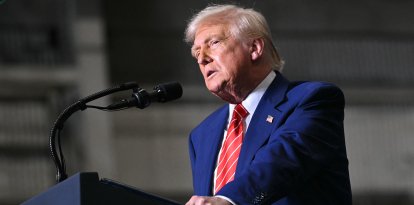US demands that all countries, including Spain, increase their defense contributions to NATO
The White House press secretary stressed that President Donald Trump expects European nations to assume what she considers a fair responsibility within the Alliance.

White House press secretary Karoline Leavitt.
The United States reiterated Thursday its firm stance within NATO: all allied countries, including Spain, must raise their defense investment to 5% of GDP. This proposal gained strength after Spanish Prime Minister Pedro Sanchez officially refused to make that commitment.
During a press conference in Washington, press secretary Karoline Leavitt pointed out that President Donald Trump expects European countries to fulfill what she considers a fair obligation. "It’s only fair considering the American taxpayers have given a significant chunk of money to the tune of billions of dollars to support our mutual interests and our assured defense," she said.
The statement comes just days before the NATO summit in The Hague. It marks a new sticking point with the Spanish government, which rejects the spending increase proposed by Washington and backed by the alliance's secretary general.
Spain rejects the proposal and asks for a flexible formula
Although its position was already known, Spain formalized its opposition through a letter sent by Pedro Sanchez to the secretary general of NATO, Mark Rutte. In it, the leader qualified the 5% target as "irrational and counterproductive" and asked for a more flexible formula to be included in the final declaration, in which the target is optional or expressly excludes Spain.
Sánchez argues that reaching that threshold would imply social cuts or tax increases, something his government is unwilling to assume. "It is legitimate for each government to decide whether or not it is willing to make those sacrifices. As a sovereign ally, we choose not to," he wrote.
Madrid justifies its position with estimates of its own
With this proposal, Pedro Sánchez defends a different distribution model: limiting military spending to 2% and prioritizing investment in diplomacy, social policies, international cooperation and economic development. This position contrasts with other allied countries, especially those that perceive themselves as more exposed to Russia and have endorsed the increase in defense spending as a strategic necessity in the current context.


























